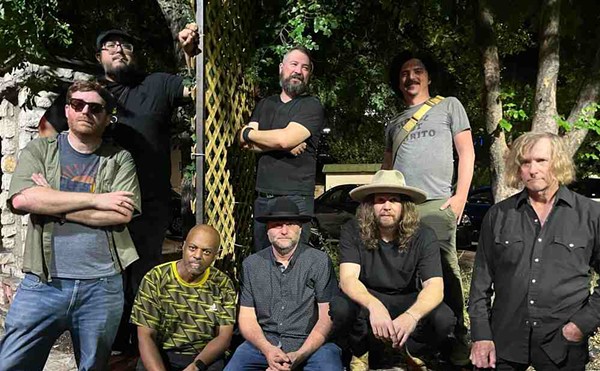Even before the masses knew Bob Dylan’s nasal voice and elusive persona, they knew his songs from covers by the likes of Peter, Paul & Mary and Joan Baez. Over the last 45 years, singers have never tired of giving the Dylan catalog a whirl, but the way they’ve approached his songs has changed considerably.
In the ’60s, covers by the Turtles, The Byrds, and Manfred Mann evinced respect and admiration, but not breathless devotion. After all, at the time Dylan was a contemporary, not a legend, and he was widely viewed as a wordsmith with little feel for the art of record-making.
By comparison, the covers on the soundtrack for the defiantly eccentric Dylan biopic I’m Not There (with Dylan portrayed by six different actors) are positively reverent, all the more curious because they’re coming from such an irreverent collection of indie rockers. To Jim James, Yo La Tengo, Stephen Malkmus, and Jeff Tweedy, Dylan is a Mount Rushmore figure, and they all seem slightly cowed by the challenge of reinterpreting the man.
Like the film, the soundtrack caters to the obsessive Bob-ologists out there, not the casual browser. Even the apparent changes to Dylan’s original intent are often rooted in obscure Dylan outtakes and live performances. Tweedy’s version of “Simple Twist of Fate” uses the altered lyrics and chord sequence from Dylan’s 1975 performance of the song for a John Hammond tribute show, a version familiar only to bootlegging nerds (which is to say half of Dylan’s audience). Similarly, the album’s most valuable cover, Malkmus’s “Can’t Leave Her Behind,” beautifully adapts an unreleased song that Dylan played with Robbie Robertson in a hotel-room sequence from the rare 1966 film Eat the Document.
Many of the covers here are simply too obvious (and faithful) to register, from Mason Jennings’s auto-pilot “The Times They Are A Changin’” to Glen Hansard and Marketa Irglova’s “You Ain’t Goin’ Nowhere.” But a few tracks redeem the whole double set: Cat Power laying the Stax, southern-soul treatment on “Stuck Inside of Mobile With the Memphis Blues Again;” Charlotte Gainsbourg innoculating “Just Like a Woman” against its inherent chauvinism with her breathy, sexually ambiguous whisper; Tom Verlaine slowing down “Cold Irons Bound” and making it even creepier than Dylan’s original; and, finally, the title song, which appears in Dylan’s rough, Basement Tapes recording with The Band, and Sonic Youth’s detached, zoned-out recasting. The song isn’t one of Dylan’s best — and The Band misses chord changes like a middle-school garage band — but it oozes mystery and soulful inscrutability. Just like Sir Bob himself.
— Gilbert Garcia
• • • • • • • • • • • • • • • • • • • • •
“I’ve got a lot to say,” sings Bettye LaVette on “Before the Money Came (Battle of Bettye LaVette),” a tune she wrote with Drive-By Trucker Patterson Hood. It’s apt because LaVette brings the fiery spirit of a woman scorned, who bides time for her moment, and now
that the spotlight is hers, she isn’t holding anything back.
This soulful, showstopping, autobiographical track comes on like Aretha Franklin’s “Respect,” recounting LaVette’s trials, how she watched friends on the Grammies while her record deals fell through, yet resisted the temptation to sell out: “All these years I kept my style/wouldn’t crossover, so it took me a while/ before the money came.” As she repeats those four words over and over again through the outro triumphantly, it’s hard to suppress a smile because LaVette sings so well, it’s obvious she deserves it.
It’s a powerful track to place so late on an album, but the material is good enough to sustain it. Backed by the Drive-By Truckers and legendary Muscle Shoals soul keyboardist Spooner Oldham, LaVette brings a raw passion well-matched by the Truckers’ lithe, gutsy soul-rock backing. Though LaVette wrote only that aforementioned track, the selection of songs is impeccable. They hold together as pieces of a whole, expressing both the regret and joy of growing old.
The album opens, appropriately enough, with Eddie Hinton’s “Take Me Like I Am (I Still Want to Be Your Baby),” slowly turning the assertion “I’ve been this way too long to change” from an expression of admirable independence to disabling frailty.
While 2005’s I’ve Got My Own Hell to Raise redeemed a nearly lost voice and career, Scene is evidence she didn’t come all this way to settle for anything less than to shame every other singer out there with one of the year’s best releases. I’ve got your American Idol right here.
— Chris Parker

















